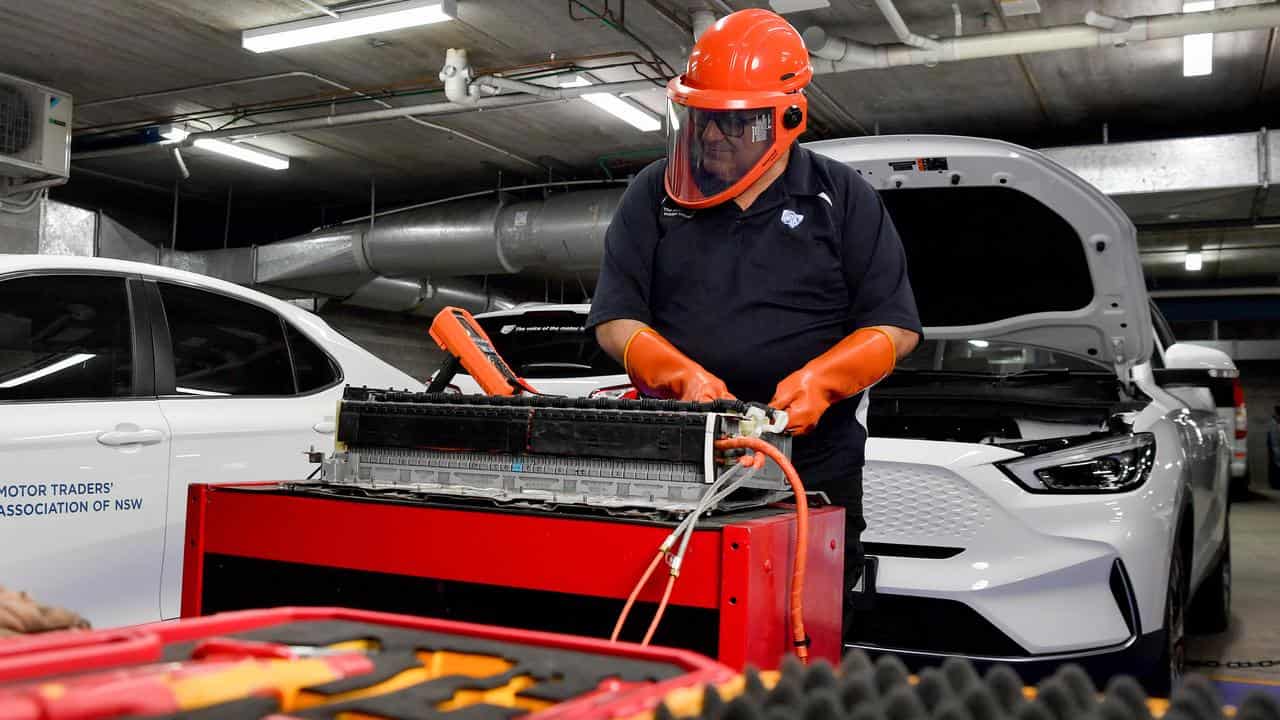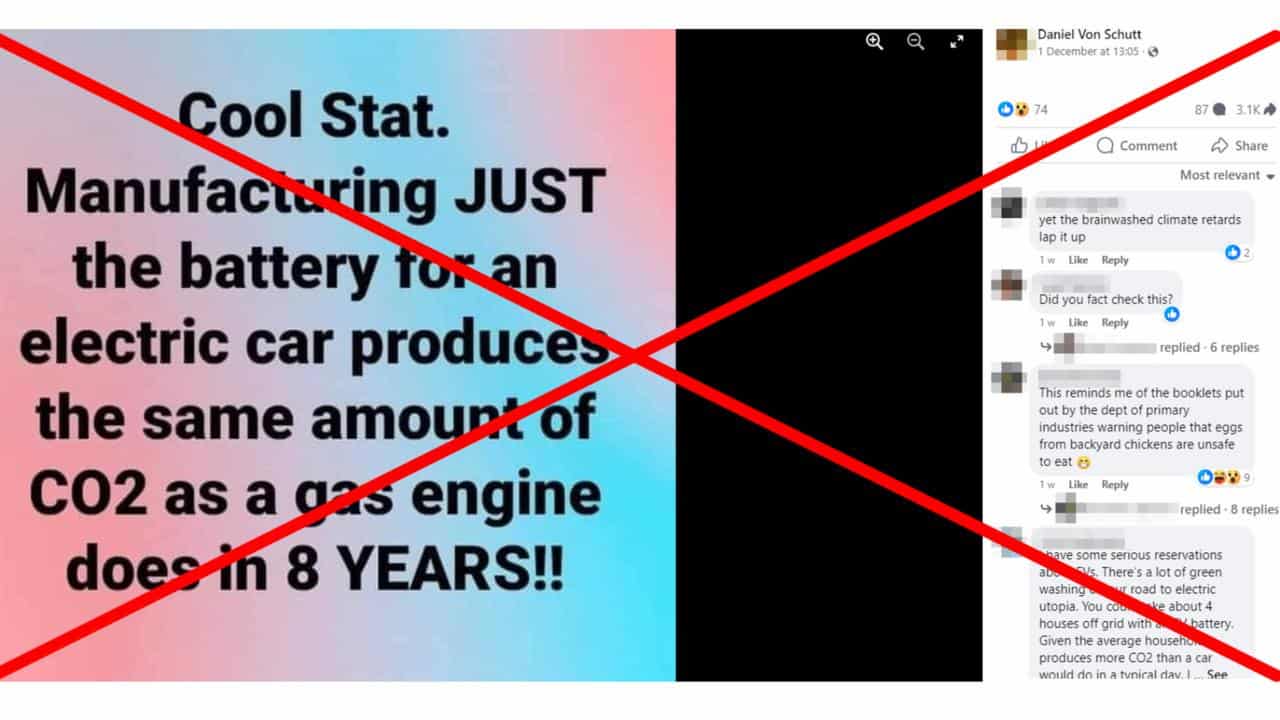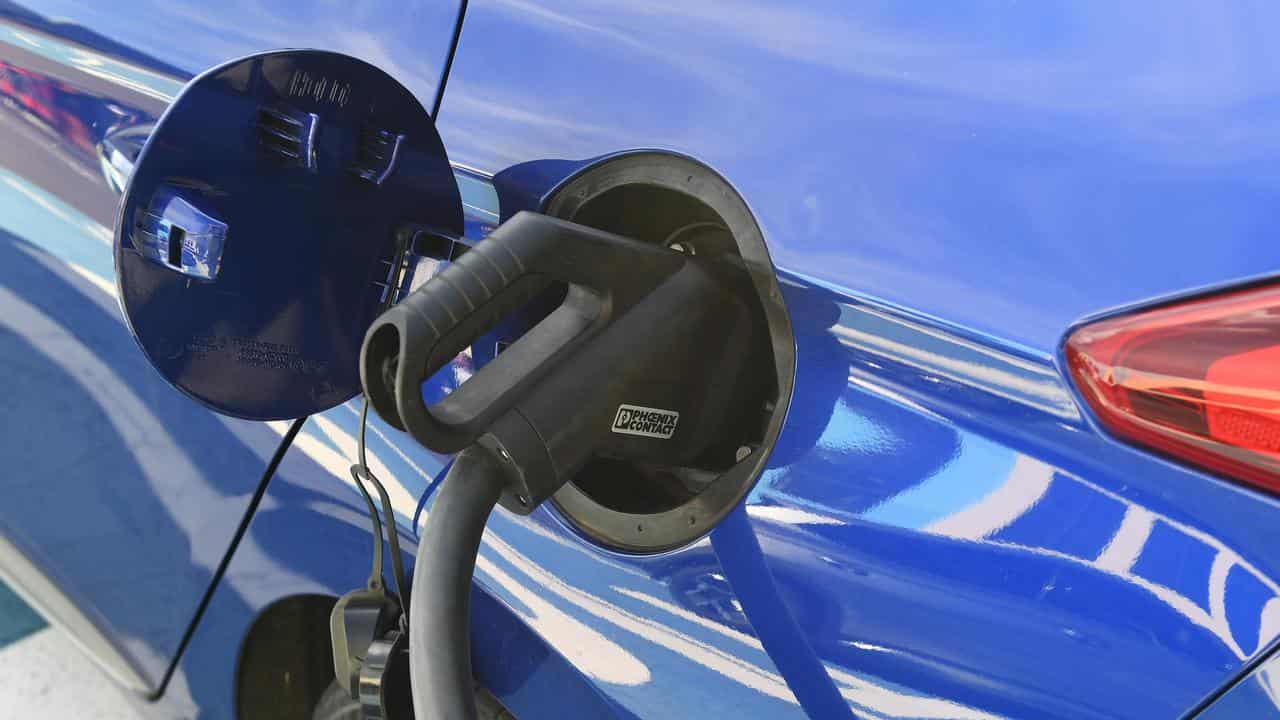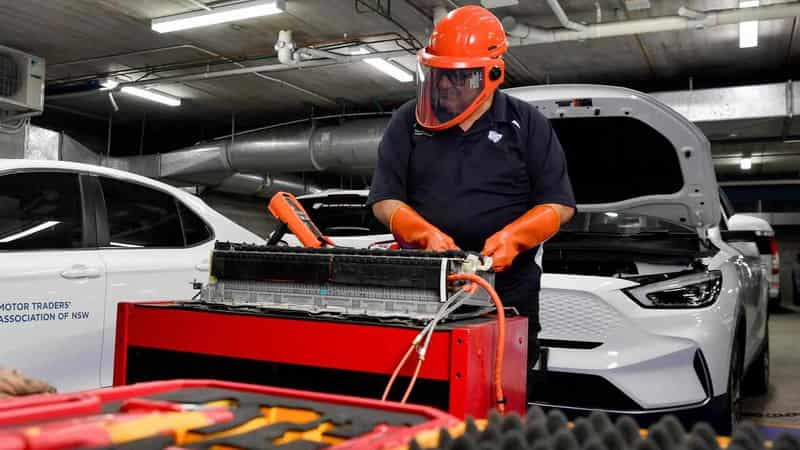
What was claimed
Manufacturing an electric vehicle (EV) battery produces the same amount of CO2 as running a petrol car for eight years.
Our verdict
False. Manufacturing EV batteries produces roughly a quarter of the CO2 from running a petrol car over eight years.
Facebook users are claiming manufacturing an electric vehicle battery produces the same amount of carbon dioxide (CO2) as running a petrol car for eight years.
This is false. Experts told AAP FactCheck the levels of CO2 emitted in EV battery production are significantly lower than the posts claim.
The claim can be seen in this Facebook post (screenshot here) which states: “Cool stat. Manufacturing JUST the battery for an electric car produces the same amount of CO2 as a gas engine does in 8 YEARS!!”
Similar claims are made here, here, here, here and here dating back as far as 2021.

Experts told AAP FactCheck the claims are far from the truth.
Emissions from manufacturing an EV battery can be calculated by multiplying the estimated kilograms (kg) of CO2 emitted per kilowatt hour (kWh) of the battery, with the total kWh capacity of the battery.
There are varying estimates as to how many kg of CO2e per kWh of battery are emitted during production.
The estimates depend on the date of the research, thus taking into account changes in energy mix and advances in manufacturing processes.
The estimates also depend on the country of production.
This 2022 research paper puts the figure at between 41kg and 89kg of CO2e, noting that the range could reduce to 10kg to 45kg by 2050 “mainly due to the effect of a low-carbon electricity transition”.
This 2019 study (page 5) from the Swedish Environmental Research Institute puts the range between 61kg and 106kg of CO2e/kWh of battery.
Although several years old, this 2017 study looks at China, which dominates the battery production market. It found a range of 96kg to 123 kg.
This paper, also from 2017, estimated battery production in Australia to be around 106kg CO2e/kWh.
Hussein Dia, a professor of future urban mobility at Swinburne University, warned against people using the extremes of the various ranges to come up with misleading conclusions.
But even when using a high estimate of 150kg of CO2e/kWh, the claim is wildly off.
Using an estimated average battery size of 60kWh, Professor Dia said the 150kg CO2e/kWh would put the total emissions at around 9000kg or nine metric tons.
In comparison, there have been various estimates of annual emissions from petrol cars.
Professor Weixiang Shen, also from Swinburne University, said the US Environmental Protection Agency has found "a typical passenger vehicle emits about 4.6 metric tons of CO2 per year". Across eight years this would equal 36.8 metric tons.
The average for cars in Australia is very similar. The grams of CO2 emitted per kilometre is around 370. Multiplied by the average number of kilometres travelled each year (12,100 km) equals 4.47 metric tons. Across eight years this comes to 35.76 metric tons.
This means EV battery production is the equivalent of about two years of driving a petrol car, not eight years as was claimed.

Associate Professor Nesimi Ertugrul, from the University of Adelaide, also highlighted the reusability of EV batteries as a mitigating factor in their emissions output.
"They can be repurposed for five to 10 years in stationary applications (including community level storage), helping to reduce intermittency in renewable energy storage or grid support," Dr Ertugrul said.
The claim has previously been debunked here and here.
The Verdict
The claim that manufacturing an electric vehicle battery emits the same level of carbon dioxide as driving a petrol engine car for eight years is false.
The emissions output created by manufacturing one EV battery equates to roughly two years of running a petrol car.
False — The claim is inaccurate.
AAP FactCheck is an accredited member of the International Fact-Checking Network. To keep up with our latest fact checks, follow us on Facebook, Twitter and Instagram.









